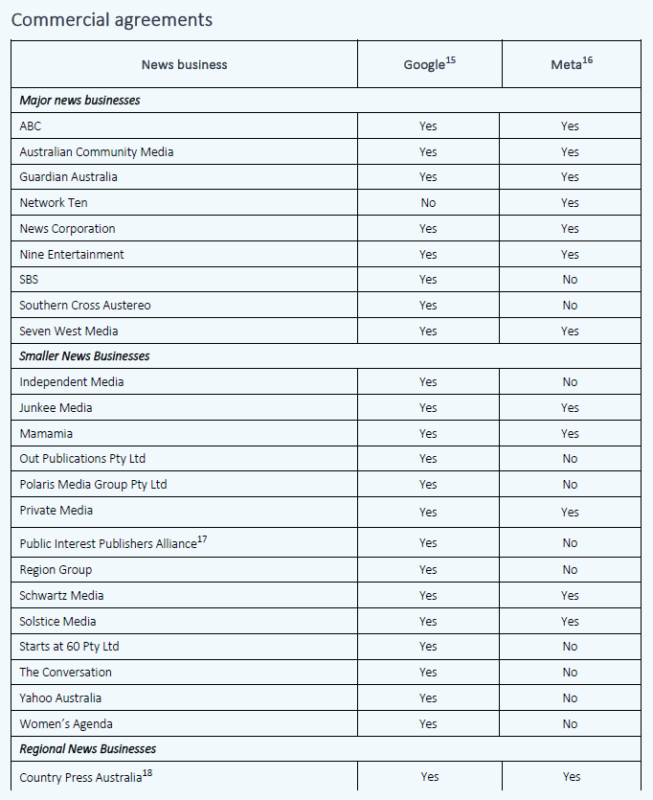News Bargaining Code is for ‘fair remuneration’, not for redistribution of resources: Treasury review
The federal government has released a first-year operation review of the News Media Bargaining Code. While some organisations have expressed disappointment in the code’s failure to enforce commercial agreements with Meta and Google, the report said its purpose is to ensure “fair remuneration” for publications, not “to redistribute resources across the news sector”.
The review said Google has reached 23 commercial agreements and Meta 13. The Australian Competition and Consumer Commission (ACCC) estimated in March that deals under the News Media Bargaining Code total over $200 million based on preliminary analysis.


